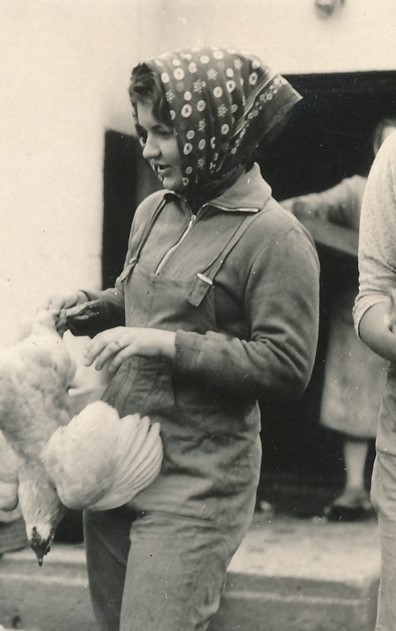No need to worry in advance

Download image
Ludmila Sulitková was born on 6 December 1946 in Pilsen. Her parents came from Mladá Boleslav. In 1949, the family moved to Ostrava, where the father, mr. prof. Ing. Dr. tech. Vítězslav Vavřín headed the Department of Power Engineering at the Faculty of Mechanical and Electrical Engineering of the Mining University in the 1950s. V. Vavřín in 1957, but soon the family was affected by serious political problems. At the beginning of 1958, his father was expelled from the university on the grounds that he was hiding a secret radio at home. The expulsion was accompanied by searches and no prospect of employment in his field. The Vavrins moved to Prague, where, after considerable vicissitudes, his father obtained a job as an electrical fitter in a brewery in Smíchov. Thanks to close friends, V. Vavřín was eventually employed as a chief power engineer at Calofrig in Borovany. Ludmila’s inadequate cadre evaluation profile became apparent in 1961 when she completed her compulsory schooling. She received an unfavourable report from the primary school, on the basis of which she was supposed to enter production at the age of 14. Thanks to a happy coincidence, she eventually entered the SVVŠ in Trhové Sviny. Three years later, she found herself in a similar situation before the university entrance exams. Nevertheless, in 1969 she graduated from the Jan Evangelista Purkyně University in Brno with a degree in archives and auxiliary historical sciences. In 1969-1977 she worked at the Historical Institute of the Slovak Academy of Sciences in Bratislava, where she received the scientific rank of CSc. In the second half of the 1970s she returned to Brno for family reasons. She worked at the Moravian Museum in Brno, the Archaeological Institute of the Czechoslovak Academy of Sciences in Brno and for the longest time (1981-1991) at the Brno City Archives (the first position fully corresponding to her university qualification). She never joined the Communist Party of Czechoslovakia, and in the late 1980s she began to associate more intensively with colleagues from the university who were critical of the regime, which enabled her to make contact with Brno dissidents. Since 1995 she has lived in Prague. She was teaching at the Department of Archival Studies and PVH at Masaryk University in Brno and at the Department of History at the Faculty of History of the University of Life Sciences in Ústí nad Labem. She specializes in the history of the Middle Ages and early modern period with a special focus on the development of cities, auxiliary historical sciences, administrative history, archives and editorial work. In 2004, she received an associate professorship in auxiliary historical sciences and archives at Comenius University in Bratislava. She is the author or co-author of several book monographs and a number of specialist studies. In 1970 she married Slovak ethnologist Andrej Sulitka. She has two children, a son Ing. Matěj Sulitka, PhD (1973), and a daughter Mgr. Jitka Sulitkova (1976).









